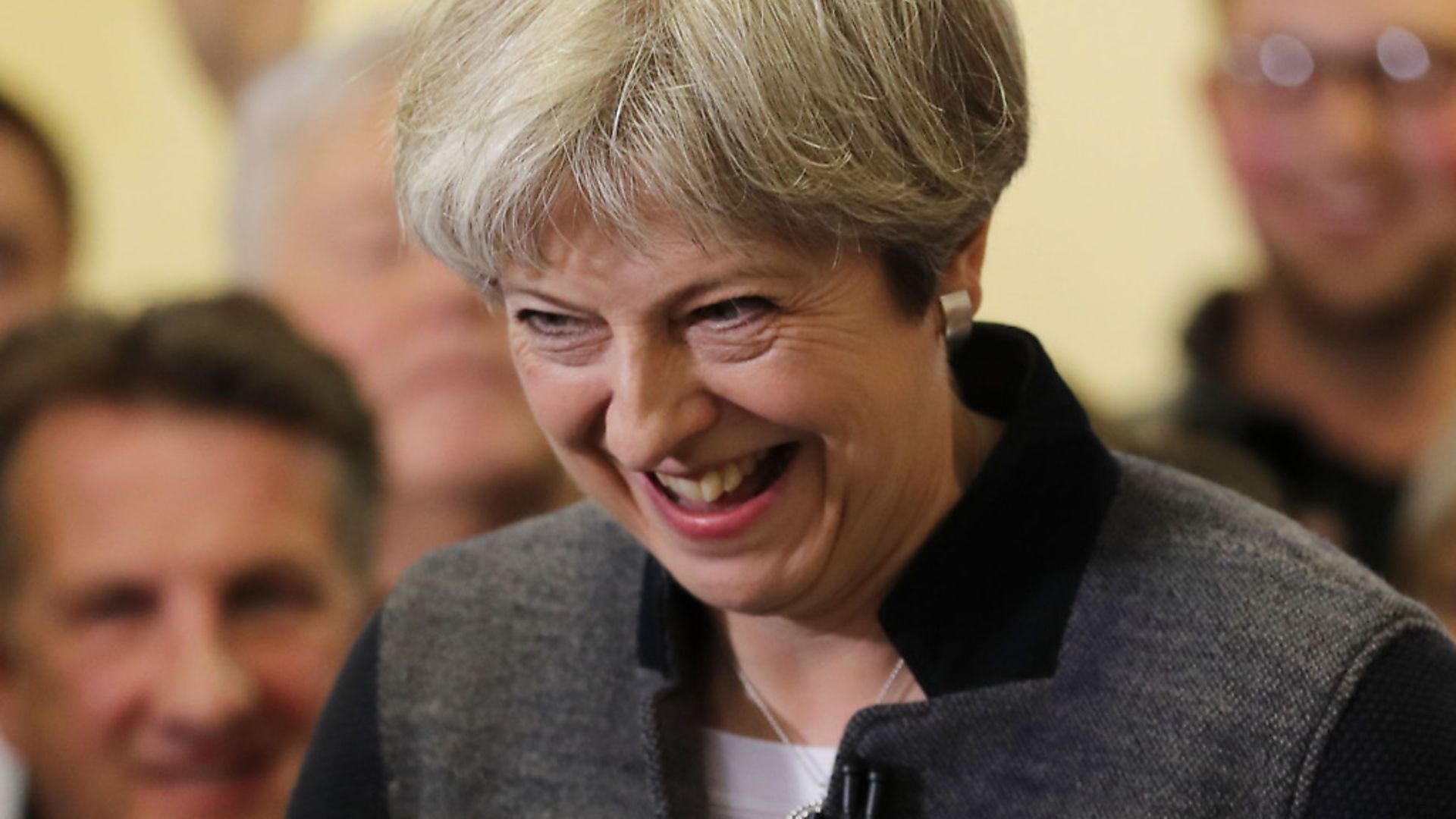
The game is back on… and you have to ask why?
Well I did NOT see that coming.
Literally; as you may even remember, in an early column I dismissed the notion of Theresa May calling a snap election before 2020 as I could see no electoral advantage for her in doing so. What’s changed?
Obviously the internet is currently a-buzz with theories and speculation as to why this election has been sprung on us: Is it to shore up the (thus far ‘unelected’) Prime Minister’s personal authority before the Brexit ‘negotiations’ (read: controlled capitulation)?
Is it to get an election out of the way now before the grim truth about the economic and social effects of Brexit begins to penetrate even the thickest of europhobic skulls? Is it to wipe out the Labour party before they have a chance to defenestrate Corbyn, thus sending the English half of the party sliding down the same garbage chute of irrelevance their Scottish colleagues fell into two years ago?
I’m sure all of these are in the Prime Minister’s mind somewhere, but there’s another story, and thus far, few people have spotted it (Kevin Maguire was, I think, first to flag it up on Twitter)…
The Electoral Commission has already fined the Conservatives £70,000 for incorrectly declaring its campaign spending totals for the 2015 General Election, and it’s understood that as many as 20 constituencies are currently under criminal investigation, with 12 cases already under consideration by the CPS. If just a handful of these cases resulted in the nullification of an election result, the consequences for the government could be disastrous.
Incumbent parties often suffer in a by-election, and it’s not hard to imagine that a by-election forced into being by the exposure of Tory spending shenanigans would be all but unwinnable for a Conservative candidate. The Prime Minister currently enjoys a working majority of just 17 seats; it would require just nine by-election losses to wipe this out completely and even four or five losses would render the government horribly vulnerable to even the lowest rumble of backbench dissent.
A snap general election avoids all of this. The prevailing psychology of a general election is totally different to that of by-elections. People vote in a general election with the thought in mind that they’re voting for the national government as a whole (they’re actually not, of course… hold that thought), not an individual candidate. Rather than shamefacedly defend seats suddenly rendered open by their own shiftiness, the Tories will ‘go to the country’ and those seats will be fought as part of a national campaign with, it would appear, the wind very much in its sails.
This is a level of sheer cynicism we’re not used to seeing in British politics. Say what you like about Margaret Thatcher but I don’t think even her fiercest critics would suggest that she didn’t believe 100% in what she was doing. If anything, a bit of cynicism would have done her (and the country) good.
This is more the kind of brazenly partisan opportunism that observers of American politics have lately come to expect from the Republicans. There’s no level of gamesmanship, chicanery, hypocrisy or just plain cheating that the modern GOP won’t sink to if there’s even the slenderest party advantage to be eked out from it. It’s depressing, if not especially surprising, to see the Tories descend to that level. So what do we do now?
On the one hand, it’s all a bit bleak, with a Tory party seemingly running all but unopposed, marching towards the Brexit precipice with the Union Jack tied triumphantly around its eyes lest it see anything disturbing en route, and Jeremy Corbyn and John McDonnell fearlessly leading the Labour Party round and round in circles, like Pooh and Piglet hunting down the elusive Woozle of socialist utopia.
On the other hand, try THIS for a tortured metaphor: perhaps the most famous unforced error in the history of US commerce was the ‘New Coke’ disaster of 1984. Coca-Cola, for reasons no-one has ever fathomed, changed its recipe. The difference in taste was, by all accounts, not that noticeable and certainly not an improvement, but what really sealed New Coke’s fate was the triumphant reaction of arch-rivals Pepsi. Their CEO issued a gleeful press statement which concluded with the memorable phrase ‘After 87 years going eyeball to eyeball, the other guy just blinked…’ Coca-Cola meekly re-issued the old recipe as ‘Classic Coke’, and ‘New Coke’ was quietly withdrawn.
Well here’s the thing: the other guy just blinked.
After ten months of being told that the matter was settled, that Brexit was a done deal, that The People Have Spoken and that no revision, no examination, no discussion of the result was permissible, suddenly everything’s up for grabs again. The fact that the Conservative government – and as such, the pro-Brexit lobby – appear to have the upper hand, is not the point (or not the whole point, anyway). The game is back on, and we have to play and play well.
First thing to remember is that we, however briefly, have the philosophical advantage. ‘Why are the government doing this?’ is the question we must ask, as loudly, as frequently and as publicly as possible. Why are they doing this, when they said they wouldn’t last year and they’ve been insisting they wouldn’t ever since? What do they know now that they didn’t know then? Have they in fact realised what a disaster Brexit will be, and as such want to get themselves re-elected before the wheels come off? We’ll never get an answer from the government themselves, but we must plant that question in the minds of as many people as possible…
Second thing to remember is that we’re in a parliamentary system. The idea that, in a general election, people vote ‘for the government’ is illusory. In our system the only vote we ever get, be it in a by-election or general, is for our local MP. So look at the field in your constituency, figure out who’s most likely to fight for the anti-Brexit cause.
So wait, is this me endorsing the Lib Dems? Not directly, although given I live in a Lib Dem constituency with an avowedly pro-European MP, my choice on June 8 is clear. For some of you, it won’t be, I know. The Labour Party has let us down, and perhaps deserves whatever it’s got coming to it. But consider this; we appear to live in the age of rogue elections. Maybe – just maybe – there’s another one coming.










